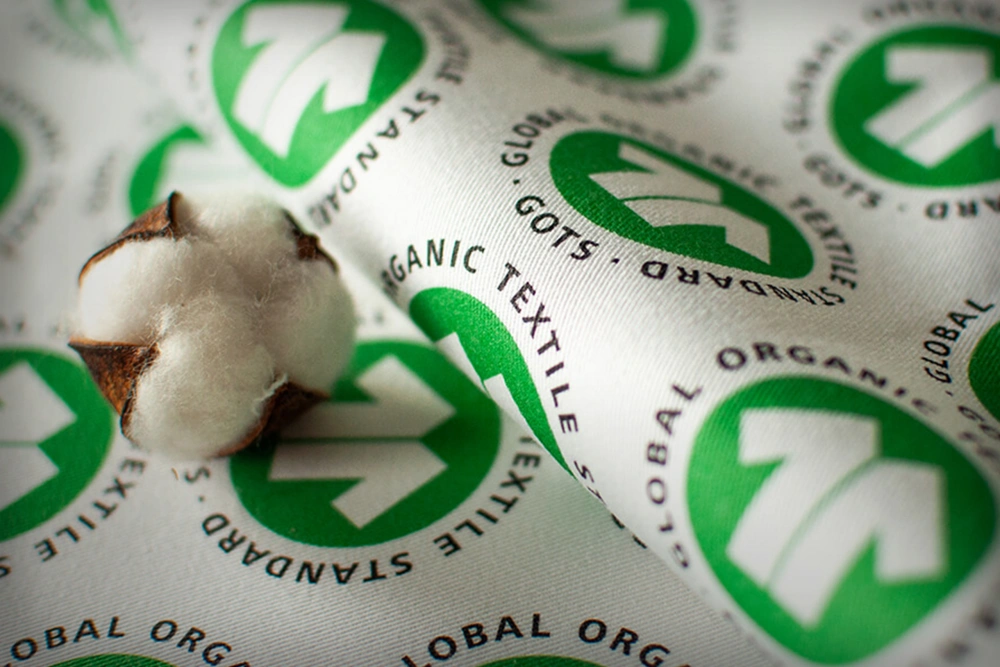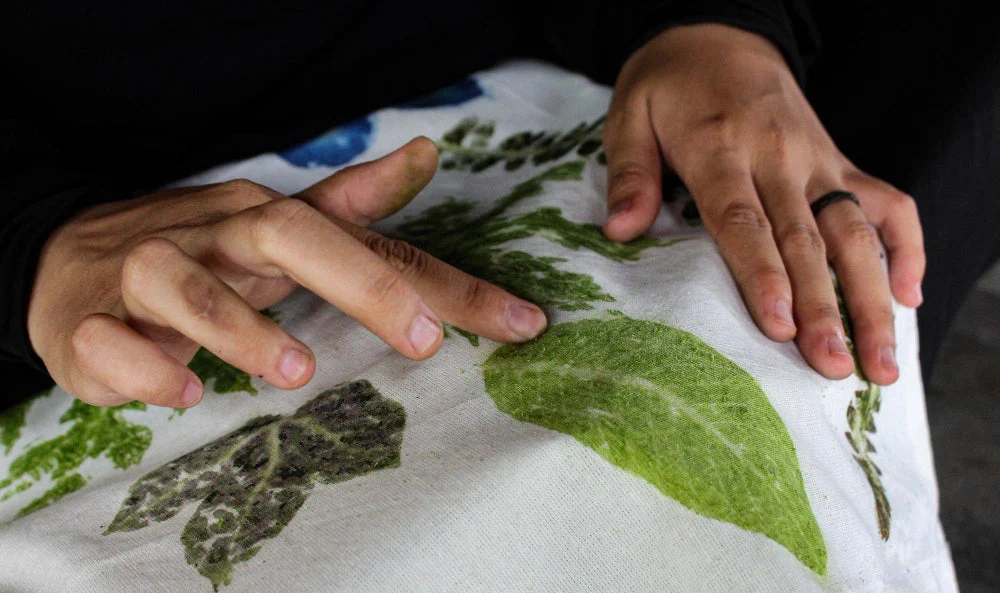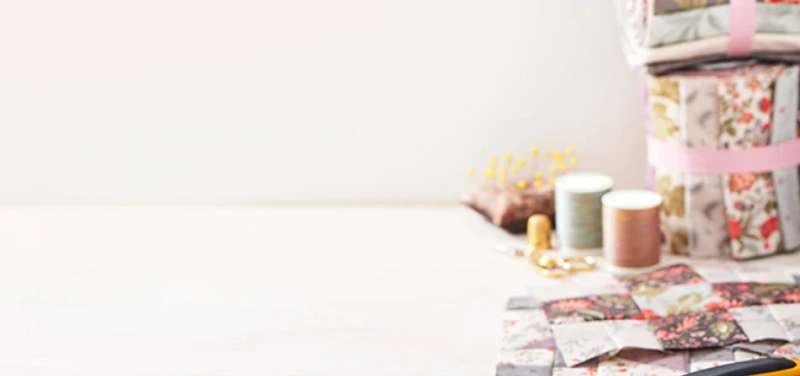You want the best sustainable fabrics for your next project, right? Here’s a quick answer: the top 15 sustainable fabric manufacturers in the world include global leaders and innovative brands like Fanda Fabrics.
These manufacturers set the standard with sustainable certifications, eco-friendly materials, and green production. Take a look at the latest market stats for sustainable fabrics:
Source | 2023 Market (USD Billion) | Forecast Year | Projected Market (USD Billion) | CAGR (%) |
|---|---|---|---|---|
MarketResearchFuture | 29.1 | 2032 | 74.8 | 12.5 |
BCC Research | 17.6 | 2029 | 27.8 | 8.1 |
LinkedIn Insight | 35.7 | 2033 | 85.2 | 10.2 |
If you care about sustainable fashion, green practices, and eco-friendly choices, you’ll find the right sustainable fabrics and manufacturers here.
Key Takeaways
Top sustainable fabric manufacturers use strict certifications like GOTS and OEKO-TEX to ensure eco-friendly and ethical production.
Leading brands adopt green processes such as water-saving dyeing, recycling, and renewable energy to reduce environmental impact.
Choosing certified sustainable fabrics helps support fair labor, reduce waste, and protect natural resources.
Fanda Fabrics and other top manufacturers offer high-quality, customizable, sustainable fabrics suitable for fashion and home projects.
Checking certifications and supplier transparency helps you make confident, responsible choices for your sustainable fabric needs.
Sustainable Fabric Manufacturers Criteria

When you’re searching for sustainable fabrics, you want to know what sets the best sustainable fabric manufacturers apart. Let’s break down the main criteria that matter for brands and consumers who care about green choices and eco-friendly fabrics.
Key Sustainability Standards
You’ll notice that the sustainable fabric industry relies on strict standards to make sure products are truly sustainable. These standards help you identify eco-friendly fabrics and ethical production techniques. Here’s a quick look at the most recognized certifications:
Certification Name | Focus Area(s) | Key Features and Criteria |
|---|---|---|
Global Organic Textile Standard (GOTS) | Organic fiber content, environmental and social responsibility across the entire supply chain | Requires at least 70% organic fibers; covers farming, production, and distribution; includes social criteria like fair labor practices |
OEKO-TEX Standard 100 | Chemical safety, harmful substances testing | Ensures textiles are free from harmful chemicals at all production stages; strict limits on chemicals; product safety for consumers |
Cradle to Cradle Certified | Product sustainability and circularity | Assesses material health, reutilization, renewable energy use, water stewardship, social fairness; promotes recyclability |
Bluesign | Sustainable production practices, chemical management | Evaluates entire supply chain; restricts harmful chemicals; ensures environmental and social standards are met |
Global Recycled Standard (GRS) | Recycled content verification, social and environmental practices | Requires minimum 20% recycled material; certifies entire supply chain; promotes recycled material use and sustainability |
These standards make it easier for you to choose sustainable fabrics that meet high environmental and social benchmarks.
Important Certifications
You should always check for certifications when picking sustainable fabric manufacturers. The most essential ones include:
Global Organic Textile Standard (GOTS): Guarantees organic materials and ethical labor.
Oeko-Tex Standard 100: Ensures eco-friendly fabrics are free from harmful chemicals.
Global Recycled Standard (GRS): Verifies recycled content and responsible sourcing.
Organic Content Standard (OCS): Tracks organic materials from source to finished fabric.
Better Cotton Initiative (BCI): Supports sustainable cotton farming.
Fair Trade Certification: Promotes fair wages and safe working conditions.
These certifications prove that sustainable fabrics are safe, durable, and made with environmentally friendly and ethical production techniques.
Eco-Friendly Processes
Top sustainable fabric manufacturers use innovative, green processes to protect the planet. You’ll see waterless dyeing, closed-loop water systems, and recycling practices becoming more common.
Many brands invest in energy-efficient production and use organic materials to reduce their carbon footprint. Eco-friendly fabrics often come from manufacturers who focus on water conservation, waste reduction, and transparency in sourcing.
By choosing these sustainable options, you help lower the fashion industry’s environmental impact and support ethical production.
Top 15 Sustainable Fabric Manufacturers

You want to know which sustainable fabric manufacturers lead the way in eco-friendly innovation and ethical production. Here’s your guide to the top 15 brands making a real difference in sustainable fashion and green textile sourcing.
Each manufacturer brings something unique to the table, from organic cotton to recycled materials and advanced green processes.
Fanda Fabrics (China)

If you’re looking for a global leader in sustainable fabrics, Fanda Fabrics stands out. Based in Qingdao, China, this manufacturer has over 20 years of experience supplying premium fabrics for fashion, quilting, and home décor.
You’ll find a strong commitment to sustainability here, with certifications like GOTS, Oeko-Tex Standard 100, GRS, Bluesign, and more. Fanda Fabrics uses organic cotton blends, recycled polyester, and biodegradable materials.
Their eco-friendly processes include water-saving dyeing, mechanical finishing, and the reuse of waste fibers. You can order small batch customizations and enjoy quick delivery, which is perfect for both large and small projects.
Fanda Fabrics has earned international recognition by participating in events like H+H Cologne and the Houston Quilt Market. You’ll see their products in major retailers such as Walmart, JOANN, and Hobbycraft.
If you want sustainable fabrics with vibrant colors and captivating patterns, check out their Organic Poplin Fabric, Solid Color Cotton Fabric, and Cotton Quilting Fabric. These options offer breathability, durability, and comfort, making them ideal for eco-friendly fashion and crafting.
Tip: Fanda Fabrics combines sustainability with customization, so you can create unique, green products for your brand.
Certification / Practice | Description / Focus Area |
|---|---|
GOTS, Oeko-Tex, GRS, Bluesign | Organic fibers, chemical safety, recycled content, and sustainable production |
ISO 9001, 14001, 45001, 50001, 26000 | Quality, environment, safety, energy, social responsibility |
SA8000, WRAP | Ethical labor, humane manufacturing |
Water-saving dyeing, mechanical finishing | Reduces water and chemical use |
Recycled polyester, organic cotton blends | Eco-friendly materials |
Pure Waste Textiles (Finland)
You’ll find Pure Waste Textiles at the forefront of textile recycling. This Finnish manufacturer turns leftover fabrics and cutting waste into 100% recycled textiles. They sort waste by color to avoid extra dyeing, then blend recycled cotton with polyester from plastic bottles.
Their circular business model reduces landfill waste and cuts carbon emissions by up to 50%. Pure Waste Textiles uses renewable energy and aims for carbon neutrality by 2026. If you want sustainable fabrics made from recycled materials, this brand delivers high-quality options for sustainable fashion.
Birch Fabrics (USA)
Birch Fabrics, based in California, specializes in organic cotton fabrics for quilting, apparel, and home décor. You’ll find GOTS-certified organic cotton in their collections, grown without toxic pesticides or GMOs.
Birch Fabrics supports eco-friendly farming and ethical labor practices. Their vibrant prints and soft textures make them a favorite among sustainable fashion designers and eco-conscious crafters.
Cloud9 Fabrics (USA)
Cloud9 Fabrics offers designer-quality sustainable fabrics made from 100% certified organic cotton. You’ll see eco-responsible low-impact dyes and organic, non-chlorinated bleaching processes in their production.
Cloud9 sources organic cotton mainly from the Indian subcontinent, supporting sustainable farming. Their ethical labor practices and collaborations with mills ensure social compliance and environmental accountability.
If you want contemporary, eco-friendly fabrics for quilting and home sewing, Cloud9 is a top choice.
Uses 100% certified organic cotton
Employs low-impact dyes and non-toxic bleaching
Supports ethical labor and sustainable farming
Herbal Fab (India)
Herbal Fab leads the way in organic cotton production in India. You’ll find GOTS certification across all their units, from spinning to dyeing. Herbal Fab reintegrates pre-consumer textile waste by creating new products like tote bags, patchwork T-shirts, and mattress stuffing.
They repurpose fabric offcuts and “second fabrics” to reduce landfill waste. Their organic cotton farming protects groundwater and biodiversity, cutting CO2 emissions and health risks from pesticides. Herbal Fab’s sustainable fabrics support a greener lifestyle and ethical sourcing.
GOTS-certified organic cotton
Repurposes textile waste into new products
Promotes biodiversity and reduces chemical use
Vivify Textiles (Australia)
Vivify Textiles, based in Australia, brings innovation to sustainable fabric manufacturing. They create eco-friendly fabrics from recycled PET bottles, fishing nets, and fabric waste. Vivify offers organic cotton, hemp, and recycled polyester, with customizable options for clients.
Their circular economy model closes the loop on textile waste, and they hold certifications like GOTS, OEKO-TEX, and GRS. Vivify Textiles won the Hightex award for environmental commitment and continues to push the boundaries of sustainable fashion.
Recycles PET bottles and fabric waste
Offers organic cotton, hemp, and recycled polyester
Holds GOTS, OEKO-TEX, and GRS certifications
Elevate Textiles (USA)
Elevate Textiles sets ambitious goals for reducing greenhouse gas emissions and water use. You’ll see the Science Based Targets initiative (SBTi) validation for their climate action plans. Elevate operates Zero Liquid Discharge facilities, recycles up to 90% of wastewater, and invests in renewable energy.
Their sustainable fabrics include recycled fibers like REPREVE®, made from plastic bottles. Elevate’s supply chain audits and water stewardship programs show a strong commitment to environmental and social responsibility.
SBTi-validated emission reduction targets
Zero Liquid Discharge facilities
Uses recycled fibers and threads
Swavelle Group (USA)
Swavelle Group focuses on waste management and resource conservation. You’ll find upcycled, recycled, and natural yarns in their sustainable fabrics. Their Bella Dura brand uses solution-dyed yarns, reducing water and energy use.
Swavelle USA fabrics incorporate recycled yarns from apparel waste, avoiding extra chemicals and dyes. The company educates staff on sustainable practices and chooses recycled materials even at higher costs. Swavelle Group’s eco-friendly fabrics support responsible design and minimize landfill waste.
Upcycled and recycled yarns
Solution-dyed yarns for water and energy savings
Avoids harmful chemicals like PFAS
Apex Mills (USA)
Apex Mills produces sustainable fabrics using post-consumer and post-industrial recycled yarns, biodegradable fibers, and natural materials like hemp, bamboo, and organic cotton.
Their EcoRich™ line features recycled yarns and low-impact dyes. Apex Mills avoids harmful substances and manufactures in the USA to lower carbon emissions. You’ll find mesh netting, solid knits, and 3D spacer fabrics in their sustainable collection.
Uses recycled and biodegradable yarns
EcoRich™ line with low-impact dyes
Made in the USA for reduced emissions
Eagle Fabrics (USA)
Eagle Fabrics offers sustainable products like reusable bags, eco-friendly drinkware, and natural fiber throws. You’ll see collapsible cotton mesh totes, recycled glass bottles, and aluminum drinkware in their lineup.
Eagle emphasizes domestic production and manual craftsmanship, using lambswool, mohair, alpaca, and silk. Their sustainable fabrics and products support a greener lifestyle and reduce single-use waste.
Reusable bags and drinkware from recycled materials
Throws and blankets from natural fibers
Manual craftsmanship for quality and sustainability
ZS Fabrics (USA)
ZS Fabrics, based in New York, specializes in organic cotton, bamboo, and linen sustainable fabrics. They use sustainable manufacturing methods and avoid harmful chemicals.
ZS Fabrics also offers sustainable accessories, supporting eco-friendly fashion and responsible sourcing. If you want organic cotton and bamboo textiles for apparel or home décor, ZS Fabrics provides high-quality, green options.
Organic cotton, bamboo, and linen fabrics
Sustainable manufacturing and accessories
No harmful chemicals
Wazoodle Fabrics (USA)
Wazoodle Fabrics supports sustainable entrepreneurship with certified sustainable fabrics made in the USA. Their products are biodegradable, skin-friendly, and free from harmful chemicals. Wazoodle uses EPA-compliant processes and locally sourced materials to reduce its carbon footprint.
You’ll find reusable bags, organic bedding, and hygiene products in their eco-friendly collection. Their fabrics last through hundreds of wash cycles, minimizing waste and supporting sustainable fashion.
Biodegradable, toxin-free fabrics
Locally sourced and USA-made
Reusable and sustainable product lines
Maker’s Row (USA)
Maker’s Row connects you with local, sustainable fabric manufacturers in the USA. The platform helps small and medium-sized brands find ethical producers of organic cotton and recycled polyester.
Maker’s Row encourages responsible sourcing and ethical labor practices, making it easier for you to launch sustainable fashion projects. You can post projects for free and collaborate with trusted American manufacturers.
Connects brands with sustainable manufacturers
Supports ethical sourcing and local production
Focuses on organic cotton and recycled polyester
Hemp Fortex (China)
Hemp Fortex is a key player in the global hemp textile market. You’ll find certifications like GRS, GOTS, and OCS, showing their commitment to sustainable production. Hemp Fortex uses advanced technology and circular fashion initiatives to expand eco-friendly hemp textiles.
Their vertically integrated supply chain supports both domestic and export markets, making them a leader in sustainable fabrics from the Asia Pacific.
GRS, GOTS, and OCS certifications
Advanced technology and circular fashion
Dominates Asia Pacific hemp fiber supply
Clothworks (USA)
Clothworks, based in Seattle, offers sustainable fabrics for quilting and apparel. You’ll find organic cotton, recycled polyester, and eco-friendly prints in their collections.
Clothworks supports ethical labor and transparent sourcing, making them a reliable choice for green textile projects. Their vibrant designs and commitment to sustainability appeal to eco-conscious quilters and designers.
Organic cotton and recycled polyester fabrics
Eco-friendly prints and ethical labor
Transparent sourcing practices
🌱 Choosing sustainable fabric manufacturers helps you support green innovation, ethical labor, and eco-friendly fashion. Each brand on this list brings you closer to a cleaner, greener future.
Fanda Fabrics Sustainable Products
You want sustainable fabrics that look great and feel good. Fanda Fabrics gives you three standout options that combine style, comfort, and eco-friendly values. Let’s check out what makes each fabric special and how you can use them for your next project.
Organic Poplin Fabric
If you care about organic cotton and natural quality, you’ll love Fanda Fabrics’ Organic Poplin Fabric. This fabric uses a field-to-loom process that skips harsh chemicals. You get a bright, natural look with every yard.
The company backs up its eco-friendly promise with certifications like Oeko-Tex and GOTS. You can even request these certifications when you order, so you know you’re getting sustainable fabrics that meet strict standards.
Produced without chemicals for a pure, eco-friendly finish
Certified by Oeko-Tex and GOTS for safety and sustainability
Perfect for clothing, home goods, and crafts
Tip: Organic poplin is soft, breathable, and gentle on skin. You can use it for baby clothes, shirts, or eco-friendly home décor.
Explore Organic Poplin Fabric
Solid Color Cotton Fabric
You want versatility and sustainability in your fabric choices. Fanda Fabrics’ Solid Color Cotton Fabric delivers both. The company uses renewable energy like solar and wind power, so you help reduce fossil fuel use. Water-saving dyeing methods cut pollution and conserve resources.
You get organic cotton and recycled cotton options, all produced with ethical labor and top certifications such as OEKO-TEX, GOTS, and the Better Cotton Initiative.
Made with renewable energy and water-saving dyeing
Sourced from organic cotton and recycled cotton suppliers
Customizable colors and finishes for any project
Note: Businesses can lower their ecological footprint and still get high-quality, customizable, sustainable fabrics.
See Solid Color Cotton Fabric
Cotton Quilting Fabric
If you love quilting, you need a fabric that’s soft, durable, and easy to work with. Fanda Fabrics’ Cotton Quilting Fabric checks all the boxes. You get organic cotton that uses less water and skips harmful chemicals.
The company uses eco-friendly finishing, water recycling, and non-toxic treatments. You’ll find a huge range of colors and prints, so your quilting projects stand out.
Soft, breathable, and durable for piecing and backing quilts
Produced with organic cotton farming and eco-friendly processes
Certified by GOTS and OEKO-TEX for safety and sustainability
Tip: Cotton quilting fabric from Fanda Fabrics is perfect for eco-conscious quilters who want sustainable fabrics without sacrificing quality or creativity.
Browse Cotton Quilting Fabric
How to Choose Sustainable Fabrics?
Choosing the right sustainable fabrics for your brand or project can feel overwhelming. You want to make sure your choices support sustainable fashion and eco-friendly practices. Here’s how you can make smart decisions and find the best fit for your needs.
Assessing Manufacturer Credentials
Start by checking the credentials of any manufacturer you consider. You should look for recognized certifications like GOTS, OEKO-TEX, and Bluesign. These show that the manufacturer meets strict standards for sustainable fabrics and ethical production.
Ask for certification documents and verify them with the issuing organizations. You can also request supply chain details to see where materials come from and how they’re processed.
Regular third-party audits and factory visits help you see operations up close. Brands like Fanda Fabrics provide transparency and hold certifications, making them a reliable choice for sustainable fabric sourcing.
Certification Type | Examples | Purpose | Verified Aspects |
|---|---|---|---|
Material Certifications | GOTS, OEKO-TEX, BCI | Ecological and social criteria | Organic status, harmful substances, and farming practices |
Social/Labor Certifications | Fair Trade, SA8000, WRAP | Ethical labor practices | Working conditions, wages, health, and safety |
Evaluating Product Sustainability
You want to know if a fabric is truly sustainable before you buy. Look for certified materials like organic cotton, Tencel, hemp, or recycled polyester. Check for labels such as GOTS or OEKO-TEX, which make it easy to spot sustainable fabrics.
Pay attention to transparency in sourcing and traceability. Ask about chemical management and worker protections. Consider the durability and quality of the fabric, since long-lasting products reduce waste.
Many eco-friendly brands share stories about their sustainability efforts, helping you understand the value behind the price.
Tip: Always check for clear certification labels and supply chain information. This helps you avoid greenwashing and make confident sustainable choices.
Matching Needs with Offerings
Think about what you need from your sustainable fabrics. Do you want recycled fibers, organic materials, or specific certifications? Compare product quality, consistency, and price. Make sure the supplier’s values match your sustainability goals.
Reliable brands like Fanda Fabrics offer a wide range of certified, customizable fabrics for sustainable fashion and home projects. Strong partnerships and clear communication with suppliers help you get the best results for your brand.
Type of fabric (organic, recycled, or blended)
Certifications and compliance with standards
Supplier’s experience and reliability
Product quality and batch consistency
Pricing balanced with sustainability goals
Choosing sustainable fabrics means looking beyond labels. You want transparency, trusted certifications, and a good match for your project. Brands like Fanda Fabrics make it easier to find sustainable choices that fit your needs.
Environmental Impact of Sustainable Fabric Manufacturers
When you choose sustainable fabrics, you help protect the planet. Top manufacturers work hard to lower their environmental impact. They use smart strategies to reduce pollution, save resources, and keep waste out of landfills. Let’s look at how these companies make a difference.
Reducing Carbon Footprint
You want to support brands that cut down on greenhouse gas emissions. Many sustainable fabric manufacturers use renewable energy, like solar or wind. Fanda Fabrics, for example, powers its production with green energy and uses efficient machines to lower energy use.
Pure Waste Textiles in Finland recycles old textiles, which means less energy and fewer emissions. Elevate Textiles sets science-based targets to shrink its carbon footprint. When you pick sustainable fabrics, you help slow climate change.
Water and Energy Conservation
Water and energy are precious. Sustainable fabric makers know this. Fanda Fabrics uses water-saving dyeing and closed-loop systems to reuse water. Herbal Fab in India grows organic cotton with less water and avoids harmful chemicals.
Swavelle Group uses solution-dyed yarns, which need less water and energy. These steps keep rivers clean and save power. You get beautiful, environmentally friendly fabrics without wasting resources.
Waste Management
Waste can harm the earth if not handled well. Leading manufacturers turn waste into new products. Fanda Fabrics recycles leftover fibers and uses them in new fabric lines. Pure Waste Textiles sorts and reuses fabric scraps, so less ends up in landfills.
Vivify Textiles transforms plastic bottles and fishing nets into green fabrics. By choosing these brands, you support a cleaner world and help keep waste out of nature.
When you buy sustainable fabrics, you join a movement for a greener, healthier planet. Every choice you make matters!
Conclusion
Choosing sustainable fabrics matters for you and the planet. You support ethical practices and help reduce waste every time you pick sustainable fabrics. Look for trusted certifications and compare fabric options before you decide.
Explore Fanda Fabrics and other top brands to find the right sustainable fabrics for your next project. Want to get started? Reach out to manufacturers, ask for samples, or learn more about sustainable fabrics today!
FAQ
What makes a fabric manufacturer truly sustainable?
You want to look for certifications like GOTS or OEKO-TEX, eco-friendly materials, and ethical labor practices. A sustainable manufacturer uses less water, reduces waste, and chooses renewable energy. These steps help protect the planet and support fair working conditions.
How do I verify if a fabric is eco-friendly?
Check for trusted certifications on the label or website. Ask the supplier for documentation. Look for details about organic materials, recycled content, and safe dyeing processes. If you see transparency and clear information, you can feel more confident in your choice.
Can I order small batches of sustainable fabric?
Yes, many top manufacturers, including Fanda Fabrics, let you order small quantities. This helps you test quality before making a big purchase. You can also try different fabrics for your projects without a large commitment.
Why should I choose organic cotton over regular cotton?
Organic cotton uses fewer chemicals and less water. It’s safer for farmers, better for your skin, and kinder to the environment. You get a soft, breathable fabric that supports healthier ecosystems and reduces pollution.
Are sustainable fabrics more expensive?
Sometimes, sustainable fabrics cost a bit more because of ethical production and certifications. However, you get better quality, longer-lasting products, and peace of mind knowing you’re making a positive impact. Many brands offer competitive prices, especially for bulk orders.
